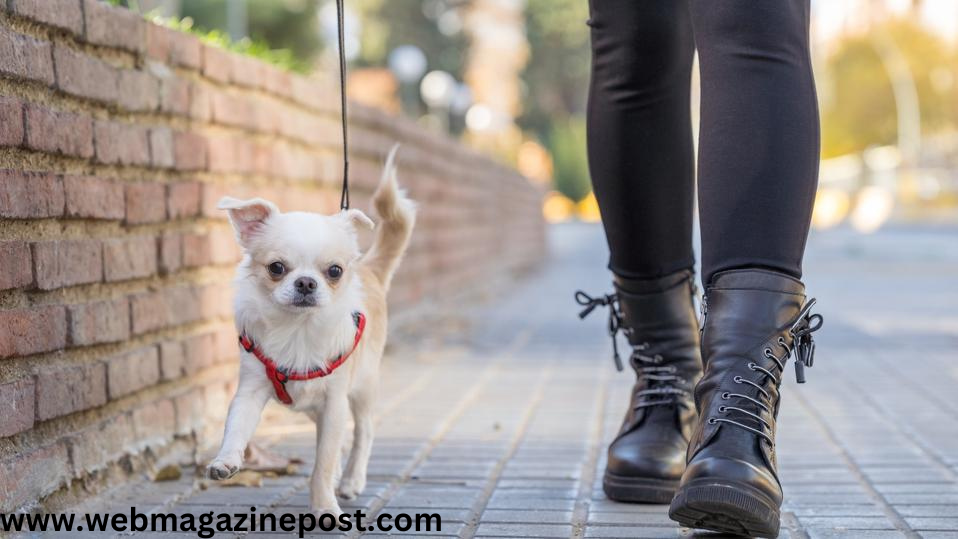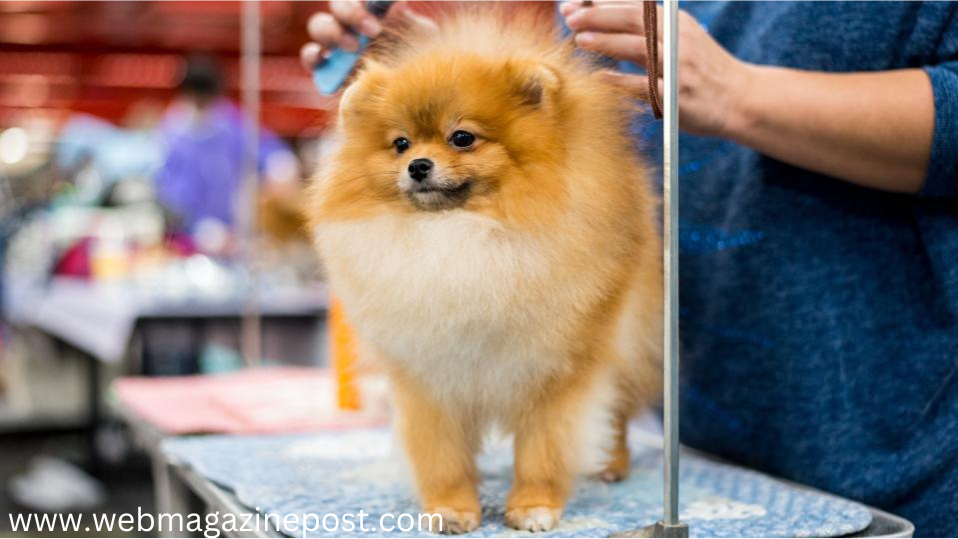
Exploring Small Dog Breeds: 100% Understanding the Temperaments of Small But Mighty to Ultimate Guide
Introduction to Small Dog Breeds
So, you’re thinking about adding a furry friend to your family, and you’ve got your eyes set on a Small Dog breed. Excellent choice! Small Dog Breeds come with a host of benefits that make them perfect companions for many different lifestyles. But what exactly are small dog breeds, and why might they be the right fit for you? Let’s dive in and find out!
What Are Small Dog Breeds?
Small dog breeds are typically those that weigh less than 25 pounds and stand under 16 inches tall. They come in various shapes, sizes, and personalities, each with its own unique charm.
Why Choose a Small Dog Breeds?
Small Dog Breeds are not only adorable, but they also adapt well to different living situations, including apartments and houses with limited space. They are easier to travel with, generally cost less to feed and care for, and can offer just as much love and companionship as larger breeds.
Popular Small Dog Breeds
Chihuahua
Origin and History
The Chihuahua hails from Mexico and is one of the oldest Small Dog Breeds in the Americas. Known for their tiny size and big personalities, they’ve been a favorite for centuries.
Temperament and Characteristics

Chihuahuas are loyal, energetic, and sometimes a bit feisty. They are known to bond closely with one person and can be wary of strangers.
Pomeranian
Origin and History
Originating from the Pomerania region (now part of Poland and Germany), Pomeranians are descendants of large sled dogs. Over time, they were bred down to their current petite size.
Temperament and Characteristics
Pomeranians are lively, inquisitive, and bold. They excel as watchdogs because they are very alert and vocal.
Yorkshire Terrier
Origin and History
The Yorkshire Terrier, or Yorkie, was developed in England in the 19th century to catch rats in clothing mills.
Temperament and Characteristics
Yorkies are spirited, affectionate, and sometimes a bit stubborn. They thrive on attention and make great companions for those willing to give them lots of love.
French Bulldog
Origin and History
French Bulldogs were initially bred in England and later refined in France. They were companions to lace workers who migrated to France during the Industrial Revolution.
Temperament and Characteristics
French Bulldogs are recognized for their playful, adaptable, and loving nature. They are great with children and other pets, making them excellent family companions.
Shih Tzu
Origin and History
The Shih Tzu’s origins can be traced back to ancient China, where they were favored by royalty. Their name means “Lion Dog” in Mandarin.
Temperament and Characteristics
Shih Tzus are known for their friendly, outgoing, and affectionate personalities. They love being around people and are generally good with children and other pets.
Benefits of Owning a Small Dog Breeds
Compact Size
Small dogs are perfect for those living in apartments or homes with limited space. Their compact size makes them easy to manage and they don’t require as much room to roam.
Easier to Travel With
Traveling with a small dog is a breeze compared to larger breeds. They fit comfortably in carriers, can often accompany you in the cabin on flights, and are less of a hassle to transport overall.
Cost-Effective
Smaller dogs generally eat less food, require smaller doses of medications, and can be less expensive to groom, making them a more budget-friendly option.
Considerations Before Getting a Small Dog

Space Requirements
While small dogs don’t need as much space as larger breeds, they still need a comfortable environment where they can move around freely.
Exercise Needs
Despite their size, small dogs often have high energy levels and require regular exercise to stay healthy and happy.
Health Concerns
Small breeds can be prone to specific health issues, such as dental problems, hypoglycemia, and patellar luxation. Regular veterinary check-ups are essential.
Training and Socialization
Basic Training Tips
Training small dogs requires patience and consistency. Focus on positive reinforcement techniques and keep training sessions short and fun.
Importance of Socialization
Socializing your Small Dog Breeds from an early age helps prevent behavioral issues and ensures they grow up to be well-adjusted adults.
Handling Small Dog Breeds Syndrome
Small Dog Breeds Syndrome refers to the behavioral issues that arise when small dogs are allowed to act dominant or overly aggressive. Proper training and socialization are key to preventing this.
Grooming and Maintenance
Grooming Needs of Popular Breeds
Different small breeds have different grooming requirements. For instance, Pomeranians and Shih Tzus need regular brushing to prevent mats, while short-haired breeds like Chihuahuas require less maintenance.
Regular Health Check-ups
Routine vet visits are crucial to monitor and maintain your dog’s health, catch any potential issues early, and keep up with vaccinations and preventative care.
Diet and Nutrition
Feeding your small dog a balanced diet suited to their age, size, and activity level is essential. Ask your vet for advice on the best food for your pet.
Small Dogs in Apartments
Best Small Breeds for Apartment Living
Breeds like French Bulldogs, Chihuahuas, and Shih Tzus are well-suited for apartment living due to their size and adaptability.
Tips for Keeping a Dog Happy in a Small Space

Ensure your dog gets plenty of exercise and mental stimulation, and has a cozy spot to call their own. Interactive toys and frequent playtime can keep them happy.
Small Dogs and Families
Compatibility with Children
Many small dog breeds are great with kids. However, it’s essential to teach children how to interact gently and respectfully with their furry friends.
Best Small Breeds for Families
Breeds like the French Bulldog, Shih Tzu, and Yorkshire Terrier are known for their friendly and patient nature, making them excellent family pets.
Traveling with Small Dogs
Tips for Air Travel
When flying with your small dog, ensure they are comfortable in their carrier, have had a chance to relieve themselves before the flight, and are calm. Many airlines permit small dogs to travel in the cabin.
Car Travel Essentials
For car travel, use a secured pet carrier or a dog seat belt harness to keep your pet safe. Bring along water, snacks, and their favorite toy for comfort.
Pet-Friendly Accommodation
Research pet-friendly hotels and accommodations in advance. Many places welcome small dogs and offer special amenities for your furry friend.
Myths About Small Dogs
Myth: Small Dogs Are Easier to Care For
While small dogs are easier to carry and require less space, they still need regular care, exercise, and training like any other dog.
Myth: Small Dogs Are All Yappy
Not all small dogs are prone to excessive barking. Proper training and socialization can help minimize any unwanted vocalizations.
Myth: Small Dogs Can’t Be Trained
Small dogs can be just as trainable as larger breeds. Successful training relies on consistency, patience, and positive reinforcement.
Adopting vs. Buying

Benefits of Adoption
Adopting a dog from a shelter or rescue organization can save a life and often costs less than buying from a breeder. It also helps reduce the number of homeless pets.
What to Look For in a Breeder
If you choose to buy, find a reputable breeder who prioritizes the health and temperament of their dogs. Steer clear of puppy mills and make sure the breeder performs health screenings.
Conclusion
In summary, small dog breeds can make wonderful pets for a variety of lifestyles. Whether you’re in an apartment, have a family with kids, or love to travel, there’s likely a small breed that’s perfect for you. Remember to consider the specific needs and characteristics of each breed to ensure a happy and healthy relationship with your new furry friend.
FAQs
What Is the Best Small Dog Breed for First-Time Owners?
The French Bulldog and Shih Tzu are excellent choices for first-time owners due to their friendly and adaptable nature.
How Long Do Small Dogs Typically Live?
Small dogs generally have a longer lifespan than larger breeds, often living between 12 to 16 years or more with proper care.
Are Small Dogs Good with Other Pets?
Many small dog breeds get along well with other pets, especially if they are properly socialized from a young age.
Do Small Dogs Need Less Exercise Than Big Dogs?
While small dogs may not need as much exercise as larger breeds, they still require regular physical activity to stay healthy and happy.
How Do I Choose the Right Small Dog for My Lifestyle?
Consider your living situation, activity level, and the amount of time you can dedicate to grooming and training. one that matches your lifestyle and preferences.


